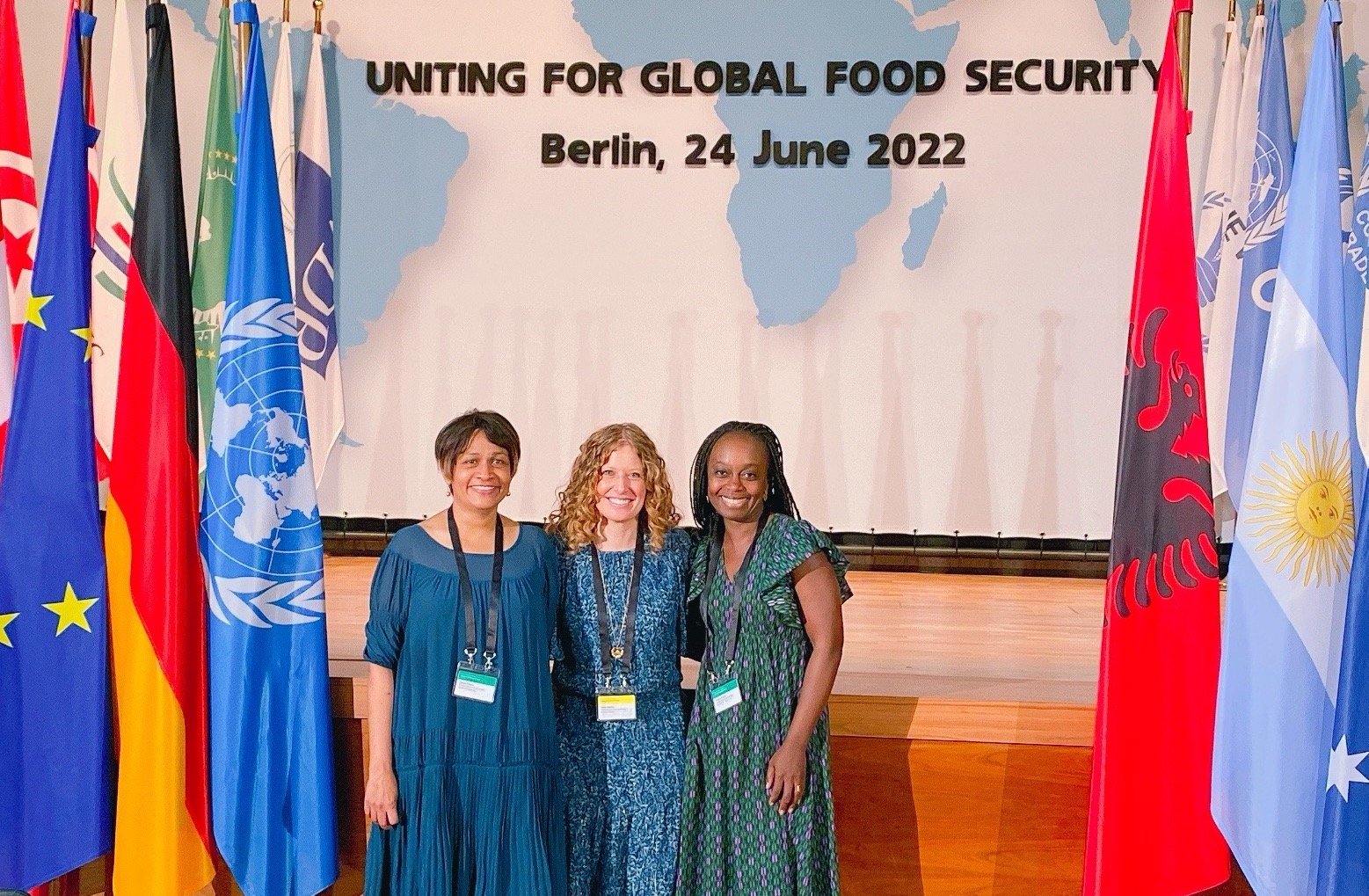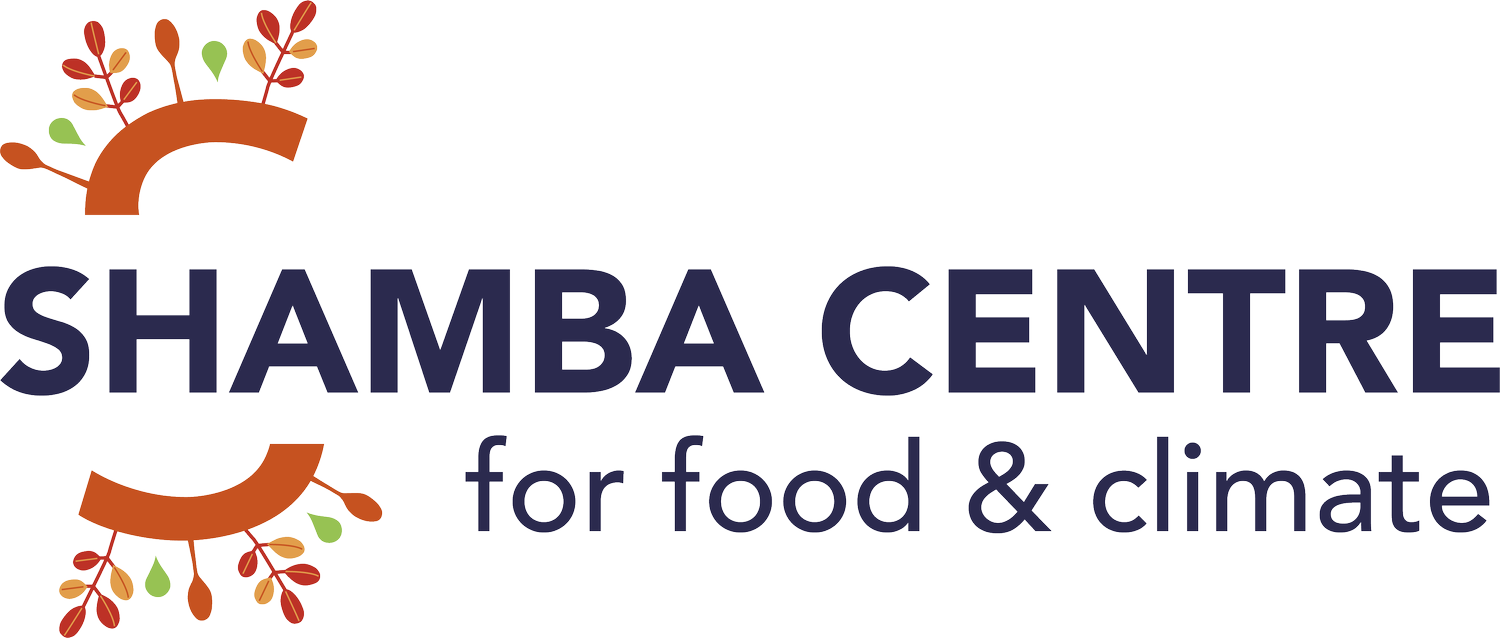
Ending hunger is possible; and we are setting out to do it
Today’s problems come from yesterday’s solutions. Peter M Senge, The Fifth Discipline
By Carin Smaller, Oshani Perera and Francine Picard, October 2022
Our vision is a future in which our food is more diverse, nutritious and affordable, our planet is restored, and small enterprises have a fighting chance to thrive and survive.
The hunger crisis currently gripping the world is the fourth since 2008. Today, 829 million people still go to bed hungry every night, even though the world produces enough food to feed everyone. Among the problems are market concentration, distribution, and the fact that we are eating the same staples all over the world. Furthermore, small food producers, who account for a large part of global food supply, remain poor, indebted and disempowered.
We set up the Shamba Centre for Food and Climate to change these defining characteristics of the food and agriculture system, and help address the existential threats of climate change, biodiversity loss, disruptions to the hydrological cycle and soil degradation. We cannot feed the world if we destroy our planet.
Guided by systems thinking that integrates knowledge across many disciplines, we will work with stakeholders who have power: politicians, policymakers, business leaders, innovators and capital holders to advocate for reforms that will remove barriers to sustainable food systems. Sometimes, we might intervene at the point of lowest resistance. On other occasions, we will burn the midnight oil to learn, research, debate and push ourselves to identify the most difficult but impactful inventions that will trigger meaningful repercussions.
We will particularly engage with governments as we believe in the power of political will. A good example is how governments responded to the COVID-19 pandemic. They spent hugely on healthcare and vaccinations, supported businesses to keep people in jobs, and asked citizens to work, learn and play at home, wear face coverings, stop travelling and gathering. Most of us obeyed: we put the public interest ahead of personal freedom. Ending hunger and achieving the sustainable development goals will require much less drastic changes to our perceptions, priorities and lifestyles. With political leadership, we can get there.
“ Guided by systems thinking that integrates knowledge across many disciplines, we will work with who have power to advocate for reforms that will remove barriers to sustainable food systems ”
We are officially launching today, but we have already gotten started on this important work. We are advising the G7-led Global Alliance for Food Security on its global strategy. We are helping three African governments design and roll out roadmaps on sustainable food systems. We are supporting the Zero Hunger Coalition and helping to expand the scope of the Zero Hunger Private Sector Pledge. We are advising Sri Lanka on debt swaps for agriculture, along with policies that will render the food system more climate smart, circular, gender inclusive and deliver affordable nutrition to all. In the coming weeks, we will expand to work on the regulation on anti-competitive conduct, incentives for green ag-tech, so-called ‘blue’ foods, and blended capital for food and agriculture.
The solutions for sustainable food and agriculture range from precision technologies and non-farmed foods, to more naturally regenerative cultivation, and diets that are more diverse with local ingredients. At the macro level, changing market power through competition policy, looking at how trade affects diet, and taking into account the climate impact of meat and dairy consumption are all important. We believe that all these ideas are all relevant: there are no silver bullets to solve complex problems. A key focus for us will be how small producers can benefit from and access solutions proposed.
The Ceres2030 report (which we worked on in previous roles) suggested that if the world invested USD 330 billion by 2030, we would be well on our way to ending hunger. This might appear to be a large sum but in fact, it is probably not enough. To put it into perspective, global GDP in 2022 is forecast to be USD 103.86 trillion. Investing a fraction of it to ensure a fundamental freedom is not just right and urgent, but a human obligation that is long overdue.
This is our commitment. This is our challenge.
We set up the Shamba Centre to end hunger forever. We will work to disrupt the status quo of food systems to make way for experimentation, innovation and bold policies that will reduce market concentration, diversify production, improve distribution, optimise yields, use less land and cause far less environmental damage. Our vision is a future in which our food is more diverse, nutritious and affordable, our planet is restored, and small enterprises have a fighting chance to thrive and survive.
We are deeply grateful to our first funders. GIZ, BMZ, IFPRI, GAIN and the Bill and Melinda Gates Foundation for their trust and for believing in our ideas.
